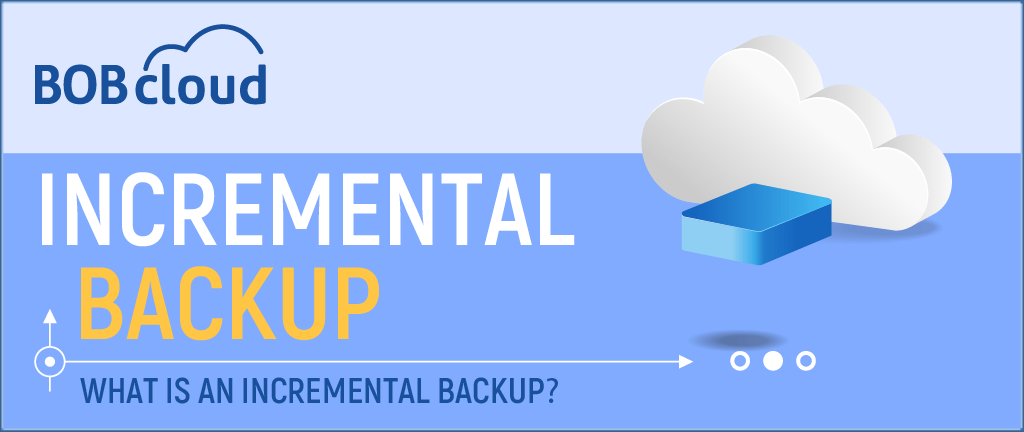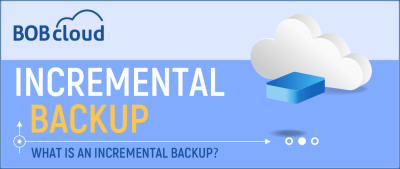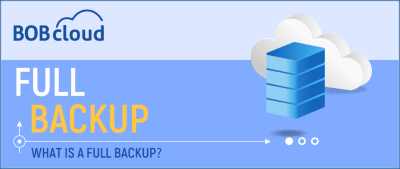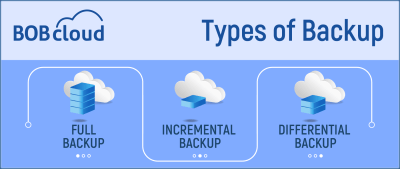What is an Incremental Backup?

An incremental backup is a data backup process that only copies new and modified data since the last backup. This method saves time and storage space because the backed-up data is smaller when compared to full and differential backups.
This article explains incremental backups, when to use them, and their benefits.
How incremental backups work
- Initial full backup: All data is backed up. Every backup set starts with a full backup.
- Incremental backup 1: New and modified data since the first backup is uploaded.
- Incremental backup 2: New and modified data since the previous incremental backup is uploaded.
- Further incremental backups: New and modified data since the previous incremental backup is uploaded.
- Deduplication takes over: We use deduplication technology on your backed-up data. As the name suggests, duplicated data is purged from the storage area, which reduces the backed-up data size and removes the requirement to run more full backups.
When to use Incremental Backups
Incremental backups are the default option when you create a backup set using the BOBcloud software, so you don’t need to make any config changes.
The Benefits of Using Incremental Backups
Efficiency: Incremental backups upload only the modifications (deltas) made since the previous backup (this can be a full, differential, or, more commonly, another incremental backup).
This method reduces the amount of data that needs to be processed and transferred, saving time, bandwidth, and storage space compared to full backups.
Faster backups: Because only modified or new data is transferred during an incremental backup, the size of this data is smaller than with a full or differential backup. Backups can run more frequently because they use less bandwidth and storage space.
Greater granular recovery: Because incremental backups are lightweight and run more frequently than full or differential backups, you will see more versions of files and data that you can restore.
When a full backup runs once per pay, it backs up one version of a file. Incremental backups can run periodically throughout the day and, therefore, can offer more restore points for your data.
Frequent backups: Frequent backups might be vital to you if you need to make multiple backups during the day.
With our Continuous Data Protection feature CDP (included), you can instruct the backup software to run when it senses files have been modified.
Deduplication keeps your backup sizes small: Since we introduced deduplication at the end of 2022, duplicated data within incremental backups is purged when the data is at rest.
Previously, there would have been duplicated content in every delta. This would, over time, cause the backup size to grow and force another full backup to compensate.
That is no longer the case with dedup. Therefore, you can use incremental backups continually.

The image above shows how the backed-up data size on one of our servers reduced when we started using deduplication.
The size of our stored data went from 985GB to 384GB overnight.
The light blue area indicates data in the retention area. In this retention area, we store previous full backups and data that has been deleted from the source device.
How frequently should incremental backups be run?
The frequency of incremental backups depends on your requirements, such as how often your data is modified. A popular setting is daily for most file types.
Conclusion
Incremental backups are the default option after the first full backup has finished.
They run regularly and create up-to-date backups of your files and data.
With incremental backups, you can retain unlimited copies of your data.
Drop a comment below to let us know the type of backups you use.



